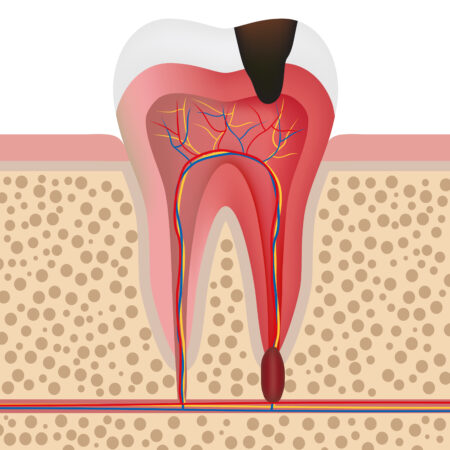 Caring for your smile is a lifelong endeavor, and one that certainly requires more effort than many patients are currently putting into it. Indeed, your oral health is constantly facing many avenues of threat, harm, and more, and unfortunately, your natural defenses pale in comparison. As such, our team recommends practicing a well-rounded preventive routine to help keep your grin strong and protected. In today’s blog, your Overland Park, KS dentist explains why it is important to recognize the signs and stages of tooth decay and how our team can help.
Caring for your smile is a lifelong endeavor, and one that certainly requires more effort than many patients are currently putting into it. Indeed, your oral health is constantly facing many avenues of threat, harm, and more, and unfortunately, your natural defenses pale in comparison. As such, our team recommends practicing a well-rounded preventive routine to help keep your grin strong and protected. In today’s blog, your Overland Park, KS dentist explains why it is important to recognize the signs and stages of tooth decay and how our team can help.
The Most Common Bacterial Concern
It goes without saying that there are countless sources of threat out there that can influence your smile’s health. From common concerns such as gum disease and infection to less-common phenomena like teeth grinding and obstructive sleep apnea, there is not much your grin is truly protected from. Still, among the various issues you are likely to face in your lifetime, none are quite as common for bacterial infections as that of tooth decay.
Decay occurs when oral bacteria nestle into the hard-to-access areas of the mouth and feed off of the food and beverages you consume. Certain food particles in particular, including sugar, can actually cause these microorganisms to produce a destructive acid. This acid plays an important role in eroding your natural layer of protective enamel, and once this substance is gone, it is gone for good.
The unique thing about decay compared to other issues is that it simply will not stop on its own. In fact, the issue will only get worse with time, and it is for this reason that our team encourages you to attend your routine checkups. For more information about this process, reach out to our team today.
Beginning with a Cavity
When the bacteria that lead to decay persist, the initial sign that the problem has expanded is the presence of a small hole known as a cavity. Think of a cavity as a small tunnel into your tooth, and the longer it persists without treatment, the worse the situation will become.
You see, your sensitive nerves are housed in the roots of your teeth, and infection will work its way into this area and lead to damage. Contact our team today to learn more about your options.
How it Progresses
The unfortunate thing about dental infection is that it simply will not stop with a damaged tooth. As a matter of fact, it will continue to spread to adjacent structures and lead to compromised teeth. Though decay can be addressed in earlier stages with a dental filling, waiting for treatment will lead to a more extensive procedure, and can even result in the possibility of removal.
Schedule Your Visit
Contact Family First Dental in Overland Park, KS by calling 913-381-2600 to learn more about the steps you can take during this process and schedule your next appointment today.
